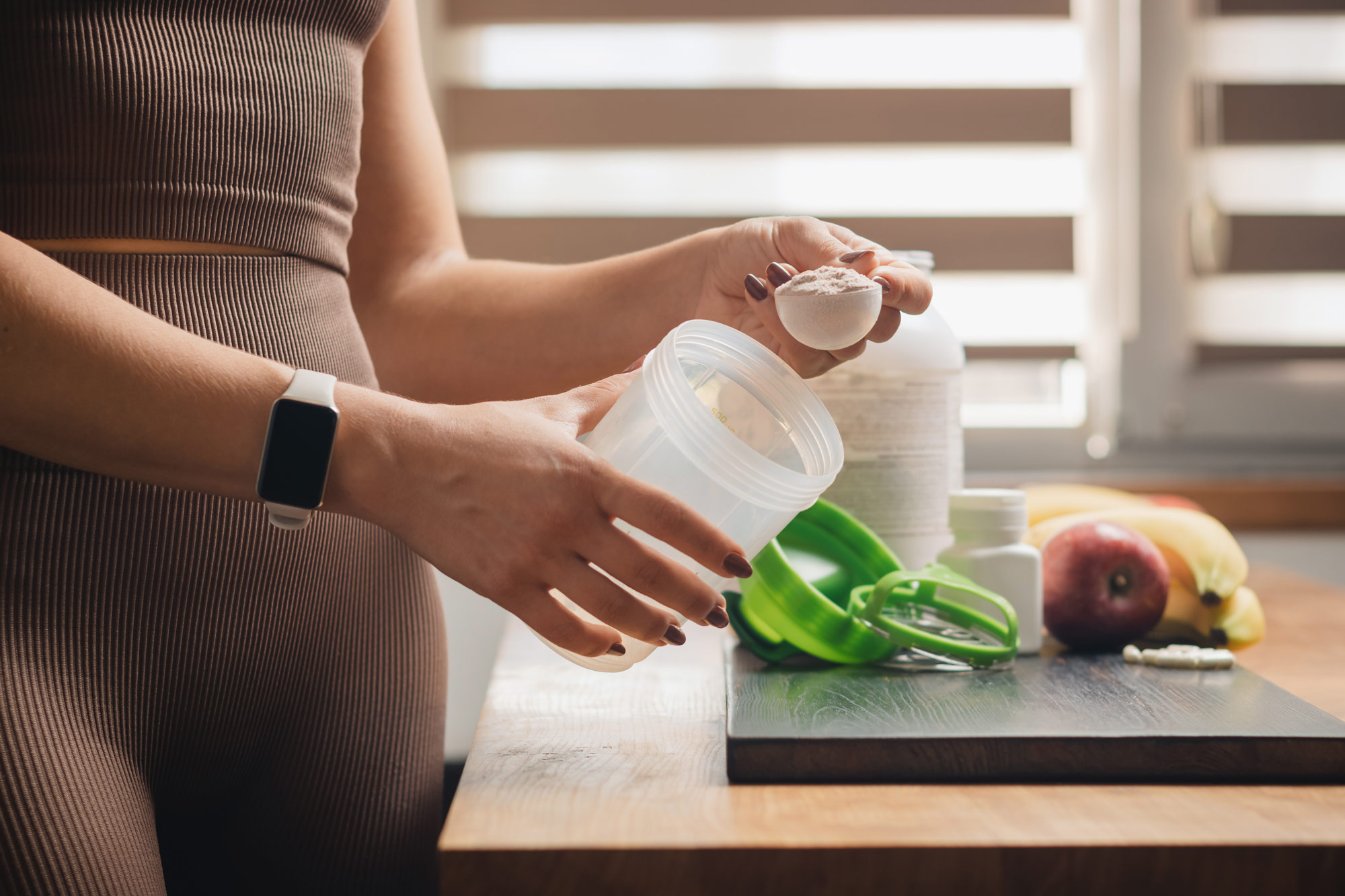SIBO is an acronym for Small Intestinal Bacterial Overgrowth. It is defined as an increase in the bacterial content of the small intestine above normal values [Source] – typically, the small intestine should be free of bacteria, most should reside in the colon!
Symptoms mimic irritable bowel syndrome (IBS), leaving many people misdiagnosed and without treatment. Let’s take a deep dive into this often overlooked but highly treatable condition…

💩 SIBO symptoms
When bacteria overgrow in the small bowel, they prematurely ferment carbohydrates, leading to excessive gas, bloating, and pain. Depending on the type of overgrowth, this may also cause constipation, diarrhea, reflux, and excessive burping.
SIBO is a well-recognized cause of maldigestion, malabsorption, and malnutrition.
SIBO can trigger not only gut-related symptoms but also systemic effects due to the absorption of bacterial toxins.
These effects can include fatigue, joint pain, brain fog (this can be significant), mood disorders, weight changes, anemia, and chronic low-grade metabolic acidosis.
And finally… just to keep things interesting, it is possible to have no symptoms!
📈 Prevalence
Global prevalence is unknown, however, a meta-analysis of 37 studies found that the prevalence of SIBO in individuals with irritable bowel syndrome (IBS) was 36.7% [Source].
A second meta-analysis found the prevalence of SIBO in those with inflammatory bowel disease (Crohn’s disease, ulcerative colitis) to be just over 22% [Source].
🦠 What causes SIBO?
In a healthy bowel, the Migrating Motor Complex (MMC), serves the role of intestinal housekeeper, sweeping and propelling undigested food residue, bacteria and digestive secretions through the small intestine, into the colon.
The electrical waves that facilitate this action occur in a cyclic, recurring pattern during fasting, roughly every 90-120 minutes [Source].
When the MMC is functioning correctly, it limits the overgrowth in the small intestine by physically moving bacteria along and out of the small bowel.
🌀 You know that rumble in your tummy in between meals? That’s your MMC in action!
Dysmotility therefore is a main cause of SIBO as there are fewer cleansing waves and a greater opportunity for bacteria to multiply excessively.
Dysmotility can initially occur due to damage to the nerves that control the MMC. This damage may be caused by factors such as gut infections (like gastroenteritis, giardia), surgical procedures, certain medications, stress, vagus nerve dysfunction, neurological disorders, or chronic conditions like hypothyroidism, scleroderma or diabetes.
Another main cause of SIBO is reduced gastric acid secretion (hypochlorhydria). Strong stomach acid is required to neutralize bacteria and other pathogens as they enter the gut. A higher pH therefore creates a more favourable environment for bacteria to thrive.
Hypochlorhydria can occur due to use of proton pump inhibitors (PPIs), H.pylori infection, nutrient deficiencies and age-related decline of gastric acid production.
Low gastric acid can also affect the activation of pancreatic enzymes and bile, which are essential for digestion and bacterial control in the small intestine. Without proper enzyme activation, undigested food particles can accumulate, providing fuel for bacterial overgrowth.
Finally, SIBO may also be caused by reflux of the colon contents into the small intestine due to ileocecal valve dysfunction.
This may occur due to physical trauma to the valve, stress and emotional factors, structural abnormalities (adhesions, strictures), appendicectomy, and anything that causes irritation or inflammation to the valve, for example: infection, poor dietary choices and food intolerances.
😟 Conditions associated with SIBO
SIBO is significantly associated with functional gut disorders – a group of disorders that involve the gut-brain axis, easily disrupted by stress.
These include dyspepsia (chronic indigestion), IBS, constipation, diarrhea, reflux.
There are also associations with other conditions, such as acne, fibromyalgia, auto-immune diseases (Celiac disease, inflammatory bowel diseases), diabetes, chronic fatigue syndrome, and more.
🌬️ SIBO testing and diagnosis
The current gold standard for SIBO diagnosis is a small intestine aspirate and culture to check for infection, however this is an expensive and invasive test so not often performed.
Breath-testing in contrast, is simple, non-invasive, relatively affordable and can even be done at home with a test kit.
There are different subtypes of SIBO, based on the types of gases the bacteria in the small bowel produce. These include;
- Hydrogen dominant SIBO (most prevalent type, associated with diarrhea)
- Methane dominant SIBO (associated with constipation)
- Hydrogen sulfide SIBO (often responsible for rotten egg-smelling gas, diarrhea, visceral hypersensitivity)
It’s these gases that the breath tests are designed to measure.
Breath testing uses different sugars as substrates – fructose, glucose and lactulose, which allows for a broader view of the microbial environment.
This is because bacteria are picky eaters and not everyone will test positive for all sugars, meaning there is a potential for a false negative if only one substrate is used.
Breath testing involves a special diet 24-48 hours prior to the test, with an overnight fast. In the morning, you begin by ingesting a substrate, fructose for example, then allow time for it to reach the small bowel, where it is potentially fermented by bacteria, producing gas.
From there, your breath sample is collected every 20 minutes over the following three-hour time period, then packaged up and dropped at your local courier depot to be sent off for analysis.
This process needs to be repeated for each of the three substrates (yes, I know it’s a bit tedious but worth being thorough).
Results typically take 2 weeks to come in, and will reveal –
- Whether there is an overgrowth of hydrogen or methane-producing bacteria in the small bowel
- If so, which part of the small bowel that bacteria reside in (distal vs proximal bowel)
- Whether there is intestinal microbial overgrowth in the colon
- Whether there is fructose/glucose malabsorption
At present, a hydrogen sulfide overgrowth can’t be directly measured via a breath test, but there are ways of ascertaining whether this is an issue for you or not.
💊 SIBO, conventional treatment
Conventional treatment involves antibiotic treatment, specifically, Rifaximin. Rifaximin is not currently funded in New Zealand, comes with substantial cost, and often, undesirable side effects.
Further, a meta-analysis of eight studies found treatment with this antibiotic normalised breath test results in only 49.5% of patients [Source].
However – studies show that when Rifaximin is combined with Partially Hydrolysed Guar Gum (PHGG), a prebiotic, the SIBO eradication rate significantly improves [Source].
🌿 SIBO, Naturopathic treatment
Naturopathic treatment is a valid option for those seeking an alternative (and more cost-effective) approach to resolving SIBO.
In fact, a recent study showed herbal antimicrobials to be at least as effective as Rifaximin [Source].
Herbal antimicrobials are the cornerstone of treatment and typically include herbs such as – garlic, pomegranate husk, green tea polyphenols, oregano, thyme and cinnamon.
Naturopathic treatment also aims to address the root cause of SIBO, be it hypochlorhydria, lack of digestive enzymes, a motility issue, or reflux of colonic bacteria via the ileocecal valve, for example.
Addressing the cause is necessary in order to prevent reoccurrence.
The low FODMAP (fermentable oligosaccharides, disaccharides, monosaccharides, and polyols) diet can also be implemented short term – this diet reduces fermentable sugars and therefore deprives the bacterial overgrowth of their fuel source.
Probiotics and prebiotics can also be introduced strategically to help decrease SIBO, improve gut motility and alleviate symptoms.
Visceral manipulation, performed by a physiotherapist or osteopath, can be helpful to manually free up the bowel in the case of adhesions or scar tissue, both of which hold the bowel in place and prevent healthy gut motility.
Lifestyle changes include stress reduction, vagal nerve stimulation, avoiding snacks between meals (remember, the MMC kicks into action in a fasting state), and eliminating alcohol (alcohol slows transit time).
😮💨 What to expect during treatment
Treatment for SIBO can be a rough road. As the bacterial overgrowth is killed off, toxins are released that may make you feel temporarily worse. This is known as ‘die off’, an unfortunate sign that treatment is working!
As for treatment duration, going the natural route can take a minimum of three months for resolution, sometimes longer, depending on the level of overgrowth.
Sometimes symptoms relapse and require a second round of herbal antimicrobials. Don’t be disheartened if this occurs, stay the course and you will get there.
👩⚕️ Where to next
If you would like to get to the bottom of your gut symptoms and suspect SIBO is an issue for you, please feel free to make a booking with me here, I’d love to help you. ❤️🩹
Till next time,
Lauren.






Comments +